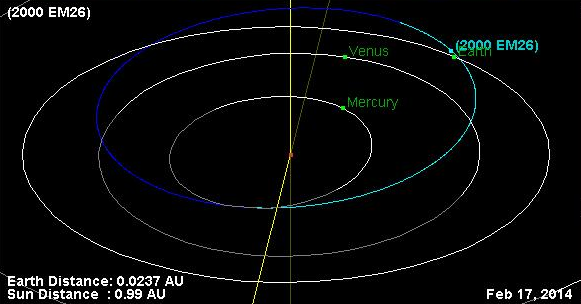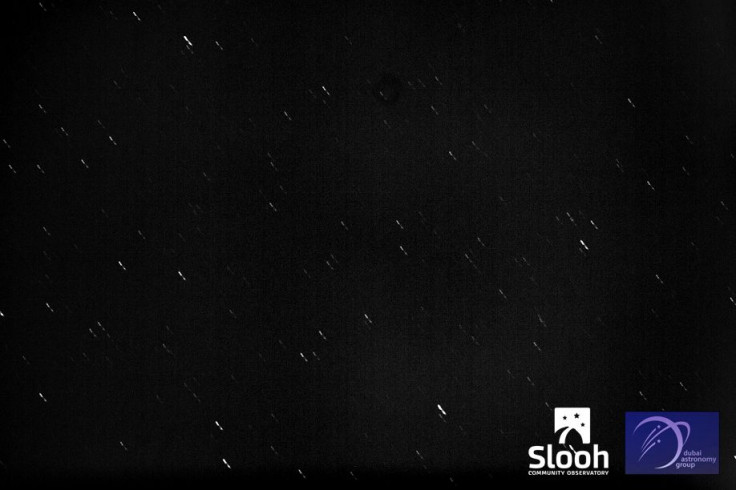Asteroid 2000 EM26 Is Lost In Space: 885-Foot Wide Asteroid Fails To Show Up As Projected

As you may have heard, a near-Earth asteroid, 2000 EM26, was supposed to orbit around Earth on Monday. With all eyes set on the Potentially Hazardous Asteroid, PHA, 2000 EM26 failed to show up, and Slooh has put an all-points bulletin to find the wayward object.
Slooh called the loss of a PHA as a bit "spooky," and asteroid 2000 EM26, with a diameter of 885 feet, roughly three football fields, has been quite elusive since its discovery. According to broadcast, the asteroid was discovered in 2000 and was observed 32 times but has not been seen since March 14, 2000.
Slooh, an international team of observatories, was set up at its Canary Islands observatory to monitor asteroid 2000 EM26's close approach to Earth. The live stream started with a discussion of the one year anniversary of asteroid 2012 DA14's flyby and the Chelyabinsk meteorite. But over the hourlong broadcast, the asteroid known as "Moby Dick" failed to appear.
Space agencies and astronomers track asteroids soon after they are discovered. NASA's Jet Propulsion Lab's Near-Earth Object Program was established to monitor asteroids like 2000 EM26. According to JPL, asteroid 2000 EM26 was supposed to make its close approach to Earth on Saturday at a distance of 8.8 lunar distances. Each lunar distance is approximately 238,900 miles.

According to the broadcast, asteroid 2000 EM26 has an orbit of 269 days but was not seen ahead of its close approach. Losing asteroids is pretty unusual as their trajectories and orbits get refined through multiple observations.
Michael Paolucci, CEO of Slooh, said in a statement, "We are calling on amateur astronomers to find this asteroid, and as a reward we will promote their accomplishment on our homepage for one year."
Astronomer Bob Berman and Slooh technical director Paul Cox says the disappearance of asteroid 2000 EM26 points out the need to continue observing and tracking near-Earth asteroids. Better observations can lead to the discovery of potential threats much earlier. For example, residents of Chelyabinsk, Russia, could have been warned of the meteorite explosion, which might have led to fewer injuries.
© Copyright IBTimes 2025. All rights reserved.






















